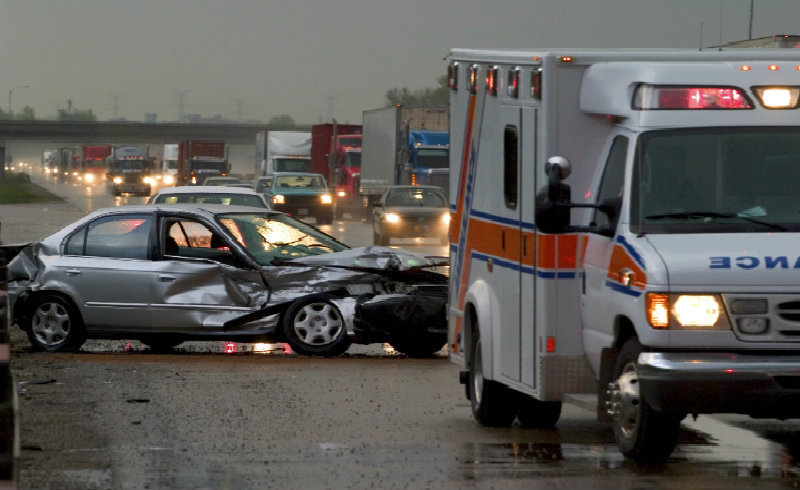There can be several reasons behind a car crash. Maybe the driver was drunk or distracted. Maybe they ran a red light or were speeding, tailgating, or making an improper turn. Oops! I missed one: medical conditions. Although less frequent than the other reasons, medical issues can cause a driver to lose control of their vehicle, leading to accidents.
It may look easy to assess, but a motor vehicle accident caused by a driver’s health condition is difficult to handle for car accident lawyers and courts alike. It becomes challenging to figure out who is at fault and prove that the condition was not pre-existing. Interesting case, isn’t it?
In this blog post, we will discuss the medical issues that cause car accidents, what should be done after the accident, and how liability is determined.
What Happens When a Medical Condition Contributes to a Vehicle Collision?
Medical Issues Causing a Car Accident
Any condition or disorder that inhibits the driver’s strength, agility, coordination, judgement, knowledge or attention is dangerous and can lead to fatal car crashes. Some common examples are:
- Diabetes
Complications from diabetes mellitus can compromise a driver’s ability to safely operate their motor vehicle. In this condition, the pancreas either produces too little or stops producing insulin. If the condition is severe, the diabetic can pass out suddenly thanks to a sudden drop in blood sugar or if the body stops responding appropriately to insulin. In the long run, diabetes can negatively affect the sufferer’s nervous system, frequently causing them to develop slower reaction times, thus increasing the risk of accidents.
- Seizures
A seizure is a sudden, uncontrolled electrical disturbance in the brain that happens when certain nerve cells misfire. This takes away the faculties needed to drive. Common symptoms include loss of consciousness, uncontrollable jerking, temporary confusion, and anxiety. Although the Ontario Highway Traffic Act has rules related to giving a driver’s license to a person with a seizure disorder, a single incidence of spontaneous seizure unrelated to illness is enough to cause a serious collision.
- Heart Attack
A heart attack occurs when blood flow to a part of the heart is blocked, usually by a blood clot. In the absence of oxygenated blood, the heart muscles begin to die. While there are medications to prevent them, heart attacks become extra dangerous when they occur when the person is behind the wheel. Drivers with a heart condition or a risk of heart attack should avoid driving to avoid accidents.
- Impaired Vision
If you cannot see what is in the front of you then you cannot drive. Impaired vision in drivers severely increases their risk of causing a car accident. For example, if the driver wears glasses or corrective contact lenses and forgets to wear them, their negligence can cost them, other drivers, and pedestrians big time. That is why there are medical and vision standards in place when applying for G or M class driver’s licenses.
Determining the Liability for a Car Accident Caused by Driver’s Medical Issues
While it is easy to figure out who is at fault when the driver is under the influence of drugs or alcohol, or rear-ends another driver’s vehicle, determining liability in an accident caused by a medical condition is harder. The problem is that each case is different from the next and some medical issues, like heart attack, are unpredictable. It is important to determine the driver’s condition that may have contributed to the case and the extent of personal injury.
However, if the medical issue was pre-existing and the driver was reckless with their health by refusing to treat it or they knowingly drove with an ailment, thus putting others at risk, the driver will be held liable for the accident.
To find out who is at fault, the car accident lawyers and judge will:
- Examine expert testimony from cardiologists, neurologists and medical specialists to find out whether the driver was aware of their condition or not;
- Evaluate whether they were intentionally negligent by failing to take care of themselves if the driver was aware of their condition;
- Evaluate how much of the driver’s condition caused the accident. For example, if there is slight impairment, the ruling may be that the driver’s health issues had nothing to do with the crash, whereas if there is a serious medical condition, the illness will be a major contributing factor when assessing damages.
In some cases, malpractice and misdiagnosis can also lead to temporary medical issues. For instance, drug manufacturers may fail to correctly label their product, or a doctor or pharmacist may offer the wrong treatment or prescribe the wrong medication. In this case, your personal injury lawyer can improve your chances of getting compensation for your property damage and other losses.
Proving who is at fault in a car accident case when a driver has a medical condition is not easy. But properly understanding the cause and the extent to which it was responsible for the accident can help your car accident lawyer in handling the case. It may even save you from a wrongful conviction. If you were involved in a motor vehicle collision caused by a pre-existing or misdiagnosed medical condition, make sure your lawyer is aware of your medical history so they aren’t caught off-guard when representing you.





